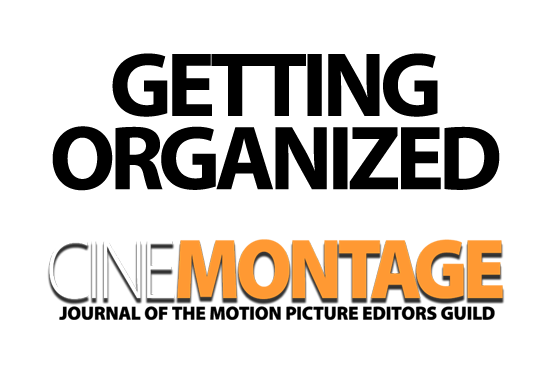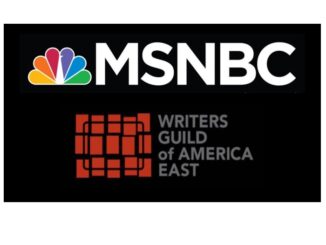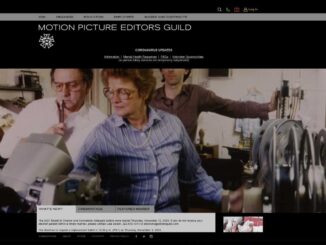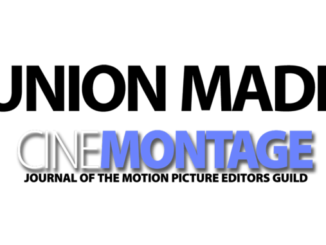
by Rob Callahan
Almost two years ago, I met a lot of new friends and reconnected with many old ones walking the picket line in support of the striking crew of Shahs of Sunset. That strike afforded plenty of opportunity for chit-chat; we walked the line for a month, over the course of which hundreds of picketers trod over 3,000 miles, collectively, back and forth on the sun-baked sidewalks of Wilshire Boulevard’s Miracle Mile. We eventually succeeded in persuading the employer to relent and sign a union contract — but only after an extraordinary display of solidarity from the ranks of Local 700 members, IATSE sisters and brothers, and our allies.

Every now and then, one of my friends remarks that it has been a long time since we last turned out members for a picket line. A few of our regular picket volunteers evidently miss the exercise, asking me when we might next have occasion to heft our picket signs, strap on our pedometers, slather on SPF 50, and step out into the sunshine to walk the walk before a recalcitrant employer. Indeed, the last time we brought member volunteers out to walk an IATSE picket line was the summer of 2015, when we picketed for just over a week in North Hollywood in support of the striking crew of Broken Skull Challenge.
I don’t know when or where we will next need to put ourselves through the paces on the picket line. It may be soon, or it might not be for another long while. But I do know it’s a good thing we haven’t had to picket in some time. In fact, it’s because we dramatically proved our endurance in the Shahs strike two years ago that we have not been compelled to demonstrate it more recently.
It’s worth reflecting upon the role recognition strikes — actions like the work stoppages at Shahs and Broken Skull — play in terms of union organizing more generally.
In most industries in the US private sector, union organizing entails a group of employees winning certification for their union from the National Labor Relations Board (NLRB), the government agency that administers federal labor law. Employees petition the NLRB; the NLRB hears arguments from the employees’ union and from their employer; if the petition is deemed valid, the NLRB conducts a secret ballot election; if the employees vote for union representation, the NLRB orders the employer to recognize the union and begin contract negotiations. The NLRB’s mandate is only that employers negotiate in good faith; it doesn’t compel the employer to agree to any of the employees’ contract demands.
We make use of the NLRB process in our industry, too. Last September, for instance, we held an NLRB election at a Culver City post-production facility owned by Deluxe Entertainment Services Group. By a vote of 92% to 8%, the Deluxe employees voted to unionize. Deluxe had paid high-priced union-busting lawyers several hundreds of dollars an hour to help them put together a campaign to convince employees to vote against the union, but that investment bore poor returns for them.
After the election, the NLRB instructed the employer to bargain, a few months of negotiations ensued, and in February employees voted to ratify their new union agreement. In addition to other contractual gains, the contract’s provision of Motion Picture Industry Pension and Health Plans health benefits amounted to a savings of more than $15,000 per year for those members insuring their families, compared to the health benefits Deluxe afforded its non-union staff. Given time, the NLRB process can work, and it’s particularly well-suited for fixed facilities where employees have relatively stable, long-term employment.
A lot of the organizing that takes place in our industry, though, doesn’t involve the usual NLRB process, but instead focuses on securing what is known as “voluntary recognition.” As a term of art in labor organizing, voluntary recognition refers to an agreement between an employer and a union, whereby the employer recognizes the union as its employees’ representative without the NLRB ordering the employer to bargain with the union. Pursuing such voluntary recognition often makes sense when the organizing target is a particular show, because the schedules of shows are often quick and the timeline of the NLRB process can often run long.
But so-called voluntary recognition — however voluntary it may seem from the perspective of an uninvolved Labor Board — is often really coerced. In the cases of Shahs and Broken Skull, for example, we secured voluntary recognition from the employers, but only after persuading the employers that they had no choice but to sign union contracts if they wanted to continue making their shows.
When an employer recognizes the union and signs a contract in order to bring employees back from a strike, that is considered voluntary recognition in terms of labor law, but it is certainly not recognition that’s offered up freely. The advances that the IATSE has made in unscripted television over the past six years have all been instances of contracts secured through voluntary recognition as opposed to NLRB certification, although such recognition has often been won by means of recognition strikes or the threats of recognition strikes.
Sometimes, though, “voluntary” means voluntary. Since the Broken Skull strike a year ago, dozens of unscripted television productions have newly become union shows without any employees having had to interrupt their work for as much as an hour. In several cases, employers entered into contracts only after they recognized that work stoppages were imminent. But, in many others, the voluntary recognition was more genuinely voluntary: Employers agreed to make their shows union at the outset, accepting the terms of employment under an IATSE contract as simply part of the cost of doing business.
Make no mistake, however; even when an employer pre-empts its employees organizing by approaching the union to negotiate a union contract, it generally does so not out of magnanimity, but of a sober recognition of necessity. It’s simply better business for employers in our industry to enter into amicable negotiations than to go through the distractions and expenses of trying to thwart their employees’ desire for union representation, especially when they understand that such efforts to fight their employees will ultimately prove futile. In other words, when employers willingly volunteer recognition of the union — as is becoming increasingly common in the arena of unscripted television — it’s ultimately members’ (and aspiring members’) volunteerism that makes such voluntary recognition possible.
If you believe that more of the folks working in post-production deserve to have a voice on the job and the benefits of a union contract, you can volunteer to help get more employers to enter into negotiations voluntarily. When you’re working a non-union job, call an organizer to volunteer information about your employment. Volunteer to talk to your co-workers in non-union workplaces about the advantages of having representation. Volunteer to support colleagues organizing at other workplaces.
All the skills and efforts of our staff notwithstanding, it is the demonstrated willingness of our members to work together in enlightened self-interest — their commitment to volunteering for the common good — which persuades employers that it is better to make deals voluntarily than to attempt to undermine our shared responsibility to uphold standards of employment in our industry.






